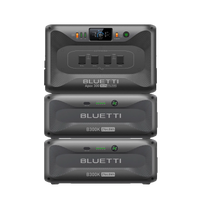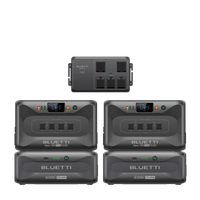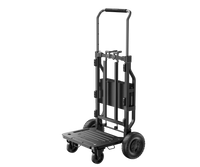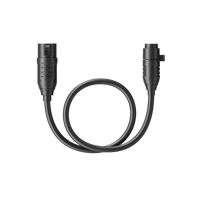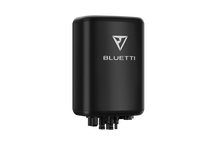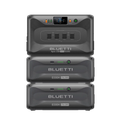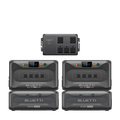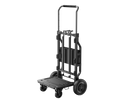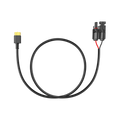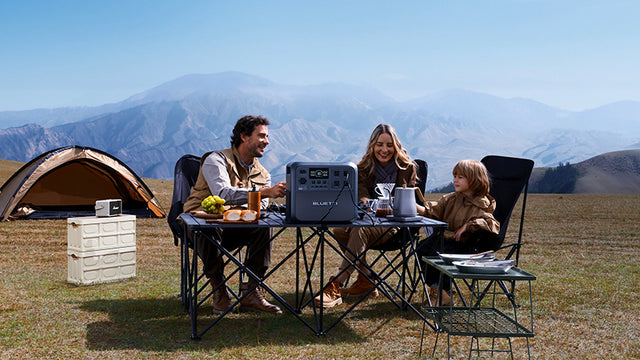Your cart is empty
Shop our productsThinking about going solar? Great decision! But with a choice between leasing solar panels and buying them, how do you decide?
Solar installations come with a high upfront cost. Although their returns on investments are good, initially this could be a burden on your pocket. Luckily, there are other financing options available that can help you navigate this.
One such option is leasing solar panels. This guide will provide you with a comprehensive overview of leasing vs. buying solar panels while answering all related questions like how it works, what are the cost differences, and what are the potential pros and cons of this.
What is leasing solar panels?

Leasing solar panels works the same as any other lease. You get your product and, in return, pay a fixed monthly fee. The lease amount varies depending on the total costs of your installation.
In the case of solar panels, the leasing company provides you with solar panels and is responsible for their periodic maintenance. In return, you pay a monthly fee and sign a contract which usually has a term lasting between 20 to 25 years.
The primary goal of any solar installation is to reduce or completely negate energy bills. So, leasing solar panels could be a good venture if your monthly lease installments outweigh your energy bills. If this is not the case, you must reconsider your decision, as it will only add to your pocket.
What is the difference between buying and leasing of solar panels?
The fundamental difference is ownership. In leasing, you relinquish ownership in exchange for upfront costs. The lease provider is responsible for everything, including upfront costs and maintenance expenses.
However, you have the right to all power produced through solar panels. You can use this power at home or earn money through net metering.
On the other hand, buying, either with your own money or through a solar loan, comes with the ownership of the system.
Leasing Solar Panels Vs. Buying Solar Panels- A detailed comparison
Leasing and buying solar panels are two different means to pay for the benefits you harness through your solar installation. Both of them have their own set of characteristics and could be differentiated on various factors. Here is their detailed comparison.
Potential of savings
Savings are the primary goals of a solar setup. Both leasing and buying could help you achieve this goal, but your mode of payment greatly influences them.
In the case of leasing, although you are saving on your monthly bills, you have to pay your monthly lease installment, and in the end, you do not own your installations. Conversely, when buying, you only have to pay once. Now, you are not only saving your energy bills but also owning the system. So savings are substantially higher than leasing.
Further, you can also add more panels to your setup to reap the benefits of net metering, which is not applicable to leasing.
Cost of buying or leasing solar panels

The most promising aspect of leasing is the negligible initial investment. There are no upfront costs associated, and because this is not a loan, you do not need any good bank statements to make yourself eligible.
Usually, there are $0 down payments for leasing, but in some cases, you might have to pay a little in advance. However, the cost of buying a solar setup varies between $25,000 and $35,000. It's important to note that this cost is without solar incentives offered by the Government or your State.
Return on investments
Simply put, the return on investments is the monetary benefits you receive on your initial investments, and in the case of leasing, you will never be able to reap these benefits.
Even though you continuously pay a specific amount for a long period, the solar system eventually becomes the property of the leasing company, leaving you with zero payback costs.
However, if you buy panels, they will pay back the system cost and interest if you have acquired a solar loan within a specific time range. In the US, this period ranges from 13 years to 18 years.
Impacts on your property value
Some estimates suggest that solar panels boost the overall value of your property by around 4.1%. So, even if your solar installations are financed with solar loans, you can easily transfer the remaining balance to buyers or pay the full amount before selling.
Leasing could quite be a headache in this scenario. Firstly, with the cost reduction of solar panels, your buyer might not be willing to continue the lease agreement due to the above-mentioned financial downsides of leasing. Secondly, if you terminate the contract, you will end up paying around $10,000 as a lease termination fee.
Access to solar incentives
In the US, there are 30% of Federal Tax Incentives available for the purchase of new solar setups. Some states also offer solar incentives. This means if your system’s average cost is $25000, only Federal incentive could help you save $7500.
However, these benefits are available only when you buy panels with cash or a loan. You are not eligible for these rebates with leasing.
However, it's important to note that when you buy solar panels, you are responsible for their maintenance, but with leasing, you do not have to worry about this.
Pros and Cons of Leasing Solar Panels
Leasing is a viable option to make your shift towards solar power. However, it also has some potential downsides. Below are the pros and cons you should consider while leasing solar panels.
Pros of Leasing Solar Panels
- There will be zero initial investments as completion installation is the responsibility of the lease provider.
- No maintenance or repair liabilities during the contract period.
- You can save some money by cutting your energy bills. However, your lease payment should be lower than your energy bills.
- Unlike buying, you will not have to wait long to get your payback, which means instant savings.
- Some lease agreements even promise the ownership of panels by the end of the lease agreement, which could eventually lead to a good return on investments.
Cons of Leasing Solar Panels
- The total savings are significantly low as compared to cash and loan purchases.
- You will not be eligible for Federal and State tax incentives.
- Contract termination could result in a high fee of around 40% to 50% of the total cost of panels.
- Leasing could be a hindrance to the sale of your property.
- With decreased electricity prices, your lease payment will exceed your potential savings.
Pros and Cons of buying solar panels
Similar to leasing, buying solar panels also comes with associated advantages and disadvantages which must be considered before making any choice. The pros and cons of buying solar panels are discussed below.
Pros of buying solar panels
- Federal tax rebates could help you save a substantial amount of money.
- You will own the panels and their returns on investment are good.
- High saving potential as compared to leasing.
- Buying solar panels will boost the value of your property.
Cons of buying solar panels
- High upfront costs.
- Long payback periods.
- You are responsible for maintenance and repairs.
Should I buy or lease solar panels?
Leasing solar panels could be tempting as it does not require colossal upfront costs, and you start saving immediately after the system is installed. But it should be kept in mind that, with leasing, you are bound to pay a monthly fee. Additionally, in the longer run, the overall benefits and savings are less as compared to buying.
Leasing could be a good choice to avail the benefits of solar power if you are not eligible for solar incentives, have no cash to buy the system outrightly, or are not applicable for a solar loan.
Buying solar panels is always recommended unless it burdens you financially. This could either be with cash or utlising solar loan services. However, it's crucial to select the right solar panels for your home.
You see, the market offers you a lot of choices in solar panels depending on their efficiency ratings, output capacity, and manufacturing material. But it's difficult to find a ruby among the rubble. Below are our two top picks to help you sail through these troubled waters.
BLUETTI PV350 Solar Panel

With only 13 kg of weight, PV300 is a portable solar panel and its 350W output capacity makes it a reliable partner whether at home or camping off the grid. With its advanced ETFE coating, this product can withstand rough weather conditions and can be cleaned easily by using a wet cloth or direct water stream.
Talking about its specifications, PV300 is made with monocrystalline silicon, the most recommended material for solar panel manufacturing. Its market-leading efficiency ratings of 23.4% ensure reliable power output even in bad weather conditions. Further, its IP-65 makes it splashproof.
Lastly, to ensure you get the best price, the product comes with a 30-day price match guarantee. So if you find any other panel of the same capacity at a low price you can claim the extra amount.
BLUETTI PV420 Solar Panel

Easy installation, portability, and exceptional output capacity, you will get all this in BLUETTI PV420. The prodct is easily foldable which makes it easy to commute. It’s high output capacity of 420W keep your storge batteries filled with power and appliance working smoothly.
With its exceptional conversion efficiency of 23.4%, PV420 could help you yield 2kWh of solar power daily with 6 hours of daily peak sunlight.
What’s exceptional about this product is its easy installation. Its foldable stands can be adjusted at three different positions, offering the best angles to capture maximum sunlight. This product is also supported with a price match guarantee.
Is leasing solar panels worth it?
If you do not have cash to buy solar panels or cannot apply for a solar loan, leasing is an excellent option to cultivate the benefits of solar power.
This is a zero-investment venture that helps you save some good amounts of money on your energy bills. Also, you do not need to worry about the maintenance and repair of panels.
However, it is crucial to consider its potential downside. You continuously have to pump money into this without any promises of return on investments. Further, you will not be able to own the installations even after 20 to 25 years of continuous investment.
The Bottom Line
Shifting to solar power is a wise decision whether you want to save some money or minimize your carbon footprint. If you don't have access to funds for buying solar panels, leasing is a good option to make your shift.
Whatever the case is, the quality of your solar panels is what that ultimately will decides the outcomes of your venture. Good quality panels whether leased of purchased could help you cultivate the solar radiations at maximum.
BLUETTI panels are manufactured from monocrystalline silicon, offer price match gaurantee and comes with industry leading efficiency ratings. So review their vast list of panels and choose what aligns best with your needs.
Shop products from this article
Be the First to Know
You May Also Like

What Does a 30% Federal Solar Tax Credit Mean and How to Apply?
Governments around the world are offering programs that encourage homeowners to switch to solar energy. Among the most notable programs is the 30% Federal Solar Tax Credit. It reduces your...

Deadly Flooding Devastates U.S. South and Midwest — What You Need to Know















